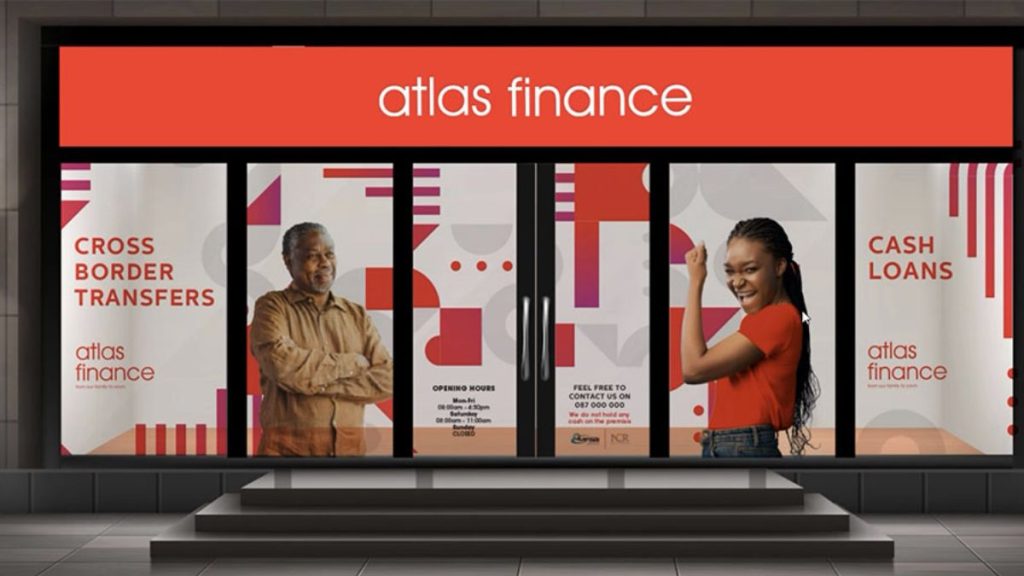Atlas Loans repayment matters when your budget is tight and time is short. Atlas Finance is a registered credit provider in South Africa that focuses on short-term personal cash loans and flexible repayment. You can apply online or at branches nationwide. Approval is quick, and repayments run by debit order.
Rates and fees are regulated by the National Credit Act (NCA), which sets clear rules and price limits to protect consumers.
Atlas Finance Overview
Atlas Finance specialises in small personal loans designed for everyday expenses. You can apply online or in branch with your ID and recent bank statements. The company has a large footprint across South Africa, with hundreds of branches that serve major towns and cities.
Who qualifies
- South African residents, 18 or older
- Valid ID and proof of income
- Three months’ bank statements
- Payslip for salaried workers, while domestic worker loans are assessed using bank statements
Common uses
- Emergencies and medical bills
- School fees and household costs
- Car repairs and transport to work
Loan types and typical terms
Atlas Finance offers several loan options so you can match repayment to your income cycle.
- Personal cash loans: R500 to R14,000 with terms from 1 to 9 months. Monthly debit-order instalments.
- Payday or short-term loans: R500 to R12,000 over 1 to 6 months. Shorter terms reduce total interest but raise the monthly instalment.
- Domestic worker loans: Up to R4,000 for up to 4 months. No payslip required. Three months’ bank statements used to assess affordability.
- Top-up loans: Up to R1,000 added to an existing loan after three on-time instalments. The top-up aligns with the remaining term of your current agreement.
Regulatory context
Under the NCA, loans up to 6 months fall under short-term credit with a specific monthly interest cap framework. Terms beyond 6 months are classed as unsecured credit and follow a repo-linked annual cap formula. The monthly service fee and initiation fee have separate maximums that apply regardless of term, within the scope of the regulations.
Rates and fees under South Africa’s NCA
South African lenders must follow strict price caps set in regulation. These rules are designed to ensure transparency and protect borrowers.
Interest rate caps
- Short-term credit (up to 6 months): Maximum 5% per month for a first short-term loan in a calendar year, and 3% per month for subsequent short-term loans in the same year.
- Unsecured credit (more than 6 months): Maximum annual interest is set by a formula that references the South African Reserve Bank repo rate. Lenders must disclose the resulting annual rate in your quote.
These are upper limits, not default prices. Your personalised rate depends on the amount, term, and risk profile.
Mandatory fee caps
- Initiation fee: A stepped formula applies and the fee is capped at R1,000, to which 15% VAT may apply.
- Monthly service fee: Capped at R60 per month.
Credit life insurance
Credit life insurance settles or helps settle your balance if you die, are disabled, or are retrenched. For personal loans and similar credit, the premium is price-capped per R1,000 of outstanding balance per month. The cover is optional in many cases, though some lenders require it. You are entitled to substitute your own policy if it provides at least the minimum benefits.
How Atlas Loans repayments work
Repayments are collected by debit order once a month on your selected date. You choose a term that matches your income and expenses. Shorter terms reduce the number of months you pay interest. Longer terms ease the monthly amount but increase the total cost over time.
Example 1: R2,500 over 3 months
- What this shows: A small, short-term loan repaid over a quarter.
- Indicative outcome: Total repayable around R3,445, which includes interest within the short-term caps, a once-off initiation fee within the legal limit, the monthly service fee, and any optional credit life premium. Your final quote could be lower, depending on your rate and whether you add insurance.
Example 2: R5,000 over 6 months
- What this shows: The upper end of short-term credit at the maximum 6-month period.
- Indicative instalment: Roughly R800 to R900 per month, depending on the rate granted, the final initiation fee within the cap, the fixed R60 monthly service fee, and your choice on credit life insurance.
Tip: Always request the pre-agreement statement and quotation. The lender must show your interest, all fees, any insurance premium, and the total amount payable before you sign.
Affordability checks and approvals
Atlas Finance evaluates whether the loan is affordable for you. The assessment includes your income, regular expenses, and existing credit commitments. You will need your ID, proof of income, and three months’ bank statements. A credit check is part of the process. These steps align with responsible-lending rules and are designed to prevent over-indebtedness.
Ways to strengthen your application
- Ensure your bank statements do not show unpaid debit orders
- Provide complete and legible documents to avoid delays
- Select the shortest term you can manage comfortably
- Align your debit date with the most reliable day you receive income
Top-ups, extensions, and late payments
Top-ups are typically available after you have paid three instalments on time. The new funds are added to your account and share the remaining term with your existing agreement.
Extensions can ease short-term pressure but often raise your total cost because you will pay the monthly service fee and interest for longer. Ask for a full cost breakdown before changing terms.
Late payments may trigger penalty interest and collection costs within legal limits. Contact the lender before a debit order fails. A new date or a catch-up plan usually costs less than a failed debit followed by collection activity. If your finances have deteriorated, ask about debt review as a formal route to restructure what you owe.
Should you add credit life insurance?
Credit life insurance can protect you and your family if something goes wrong. Since the premium is capped, the cover aims to provide value while limiting price risk.
When it helps
- You have little emergency savings
- You are the main income earner in the household
- Your sector has retrenchment risk or irregular hours
What to check
- The rand value of the premium quoted each month
- Clear benefit triggers for death, disability, or retrenchment
- Your right to use your own policy if it meets the minimum benefits
How to apply
1. Apply online
Complete a short form with your ID, proof of income, and banking details. Conditional approval can be quick, followed by final checks. Funds are generally released within one business day after approval.
2. Apply in branch
Bring your ID, proof of residence, three months’ bank statements, and your payslip if you are salaried. Atlas Finance has a wide branch network across South Africa, including many shopping centres and high-street locations.
3. Contact options
Atlas Finance supports phone and in-person assistance. If you use a number from a third-party directory or a messaging line, verify it with the lender before sharing personal information. The pre-agreement statement or branch staff can confirm the official contact details for your area.
Ways to lower your total cost
- Borrow the smallest amount that solves the problem
- Choose the shortest term you can afford
- Settle early when you can to reduce future interest and monthly service fees
- Avoid failed debit orders that add bank charges and penalty interest
- Compare the credit life premium with the cap and the value of benefits
- Keep your banking profile clean of unpaid items in the months before you apply
Illustrative cost table
These examples are for guidance only. Your quote will provide exact figures for your situation.
| Example amount | Term | What affects your price | What to check on your quote |
|---|---|---|---|
| R2,500 | 3 months | Short-term interest cap, initiation fee within legal limit, R60 monthly service fee, optional credit life premium | Total repayable, monthly instalment, whether credit life is included and at what rand value |
| R5,000 | 6 months | Short-term interest cap, R60 monthly service fee, optional credit life premium | Monthly range around R800 to R900 depending on your rate and insurance choice |
| R10,000 | 9 months | Unsecured-credit cap formula, R60 monthly service fee | Annual interest rate shown clearly, initiation fee, amortisation schedule with monthly principal and interest |
Your rights as a borrower
- You have the right to a pre-agreement statement and quotation before signing
- The lender must use plain language and disclose every fee and premium
- The monthly service fee cannot exceed R60
- Credit life insurance, if taken, must be priced within the cap and you can often substitute your own qualifying policy
- For short-term loans within a calendar year, the first short-term loan has a higher monthly cap than subsequent short-term loans
FAQs:
How are instalments calculated?
Your instalment is based on principal, interest, and term, plus the capped R60 monthly service fee and any credit life premium you choose.
Can I settle early?
Yes. You pay the outstanding principal plus interest and fees due up to the settlement date. Future months’ interest and service fees fall away, lowering your total cost.
When can I request a top-up?
Once you have established a solid payment record, commonly after three on-time instalments. The top-up rides on your current agreement and shares its remaining term.
What if my debit order fails?
Call the lender immediately. Penalties and collection fees can add up quickly. A revised date or a payment arrangement is usually cheaper than a failed debit plus recovery costs.
Do rates improve for repeat clients?
Short-term loans later in the same calendar year face a lower monthly cap than the first one. For longer terms, the repo-linked formula applies. Your personal rate still depends on your profile.
Is credit life insurance compulsory?
Not always. Where it is offered or required, the premium must sit within the regulated cap. You can often substitute your own policy if it meets the minimum benefits.
Check also: Capfin vs Atlas Finance: Which is Cheaper for a R3,000 Loan?
Atlas Loans repayment works best when you borrow only what you need, choose the shortest affordable term, and confirm every charge on the pre-agreement statement. Align your debit date with your income, avoid failed debits, and consider early settlement when your cash flow improves.










